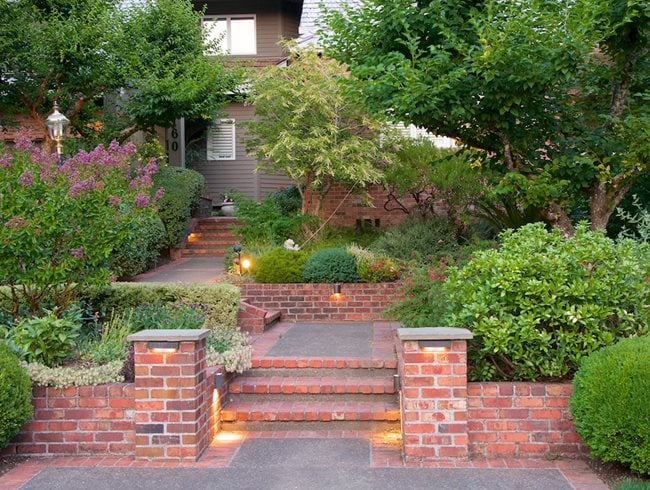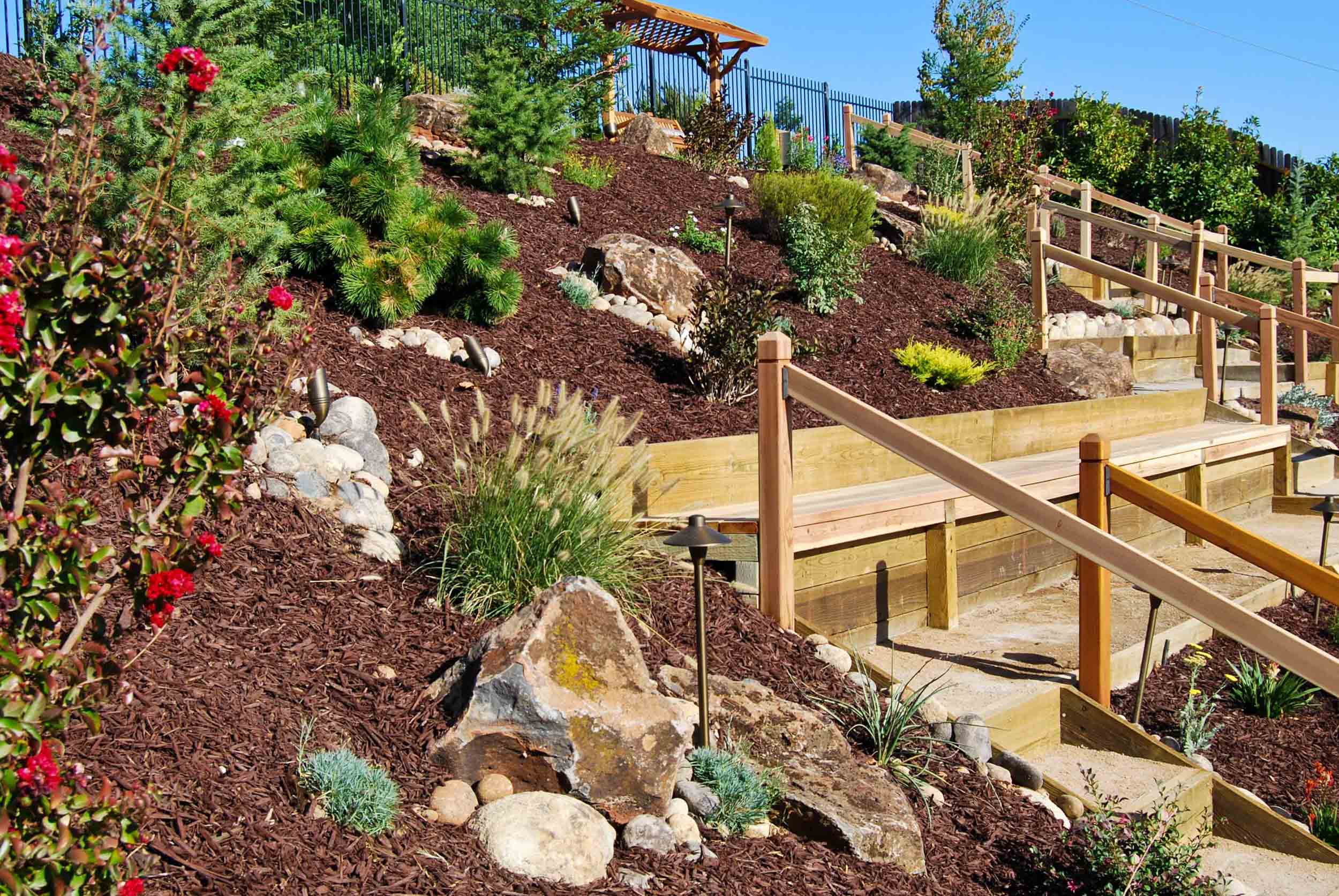Accomplish an Attractive Outdoor Sanctuary With Thoughtful Steep Hill Landscaping Solutions
Transforming a high hill right into an exciting outdoor sanctuary presents one-of-a-kind challenges that need cutting-edge landscape design options. Strategies such as terracing, the setup of preserving wall surfaces, and the choice of indigenous plants play crucial functions in this process. Additionally, incorporating water features can even more improve the landscape's appeal.
Recognizing Steep Hill Difficulties
Landscaping on high hillsides provides distinct obstacles that need careful factor to consider and tactical planning. The inclination of the surface can bring about problems such as dirt erosion, water overflow, and restricted accessibility, every one of which must be resolved to produce a practical and visually pleasing exterior room.
One of the key interest in high hill landscaping is disintegration, which can result from heavy rains or inappropriate drainage. This not only impacts plant health yet can likewise jeopardize the stability of the incline. Executing effective erosion control actions, such as planting deep-rooted greenery or making use of compost, is important in maintaining the stability of the landscape.

Designing With Terracing Strategies
To minimize the difficulties positioned by high hillsides, incorporating terracing techniques can be an effective service. This style method transforms a sloped landscape into a series of flat, degree areas, developing an aesthetically striking and useful outside space. Terracing not just assists to stop soil erosion yet also promotes far better water drain, which is vital in preserving the health and wellness of plants and the stability of the hill.
When designing balconies, cautious factor to consider of the incline's angle and the dirt type is crucial. Each terrace must be purposefully positioned to take full advantage of sunshine exposure while minimizing the danger of runoff. Making use of native plants on each degree can improve biodiversity, promote sustainability, and lower maintenance requirements. Furthermore, incorporating paths in between terraces can boost ease of access and motivate exploration of the landscape.
Terraced yards can offer numerous purposes, including vegetable manufacturing, decorative display screens, or exterior seating areas. By utilizing materials that blend sympathetically with the surrounding environment, the terracing can boost the overall aesthetic allure of the residential or commercial property. Inevitably, thoughtful terracing changes steep hillsides into functional, attractive areas that welcome interaction and satisfaction.
Implementing Keeping Walls
When faced with the obstacles of steep surface, applying retaining wall surfaces can provide both structural assistance and visual enhancement to a landscape. These walls offer to stop soil disintegration, support slopes, and produce flat areas for horticulture or recreational use. Steep hill landscaping. By effectively handling water overflow and lowering soil activity, preserving walls safeguard your landscape financial investment while improving safety

Expert installation is important to guarantee the long life and performance of keeping wall surfaces. Correct water drainage systems have to be integrated to alleviate hydrostatic stress, avoiding structural failure. Consulting with landscape professionals will make certain that the design aligns with your total vision while sticking to local guidelines.
Choosing Native Plants
Choosing indigenous plants for your landscape design uses various environmental and visual advantages. Steep hill landscaping. Indigenous plants are adjusted to the local climate and dirt conditions, needing less water and upkeep compared to non-native species. This flexibility not just saves resources but additionally promotes a healthier environment, as indigenous plants support regional wildlife, including pollinators such as bees and butterflies
Including indigenous plants right into your steep hill landscaping can boost dirt security, decreasing erosion and promoting a well balanced ecological community. Deep-rooted indigenous plants help anchor the soil, making them ideal for sloped locations. These plants often exhibit dynamic shades and varied structures, developing a visually enticing landscape that integrates with the surrounding atmosphere.
When picking indigenous plants, consider their growth habits, seasonal rate of interest, and compatibility with various other species. Grouping plants with similar water and sunlight demands can lead to an extra natural design, while likewise streamlining upkeep. By picking native plants, you not only cultivate a sustainable exterior sanctuary but also contribute favorably to the local biodiversity, making sure that your landscape prospers for years to find.
Incorporating Water Attributes
Incorporating water functions into your steep hillside landscape design can substantially boost both the visual charm and eco-friendly functionality of the space. The sound of moving water develops a serene atmosphere, while visually, it can act as a centerpiece look what i found that draws the eye and adds depth to the landscape.
When picking water features, consider alternatives that enhance the natural shapes of your hillside. Waterfalls, as an example, can cascade down the incline, creating aesthetic passion and advertising healthy and balanced drainage. Ponds can also be incorporated right into the style, encouraging regional wild animals and giving habitats for various types.
In addition, the positioning of plants around these attributes is vital. Indigenous marine plants not just boost the elegance of the water function yet additionally add to its eco-friendly balance by filtering toxins and giving food for regional fauna.
Maintenance is another key element; ensure that your water function is developed for very easy upkeep. An effectively created function will require very little intervention, permitting you to take pleasure in the appeal and serenity it supplies go to my site without too much labor. Ultimately, attentively incorporated water functions can transform your high hill landscape right into a fascinating exterior sanctuary.
Conclusion
Finally, changing a high hill right into a beautiful outside oasis requires thoughtful landscape design approaches that address erosion control and availability. The assimilation of terracing strategies, the implementation of maintaining walls, and the choice of indigenous plants are necessary components of effective style. Additionally, integrating water features boosts both visual charm and drain performance. With cautious planning and execution, high hillsides can come to be calm hideaways that supply both performance and aesthetic delight.